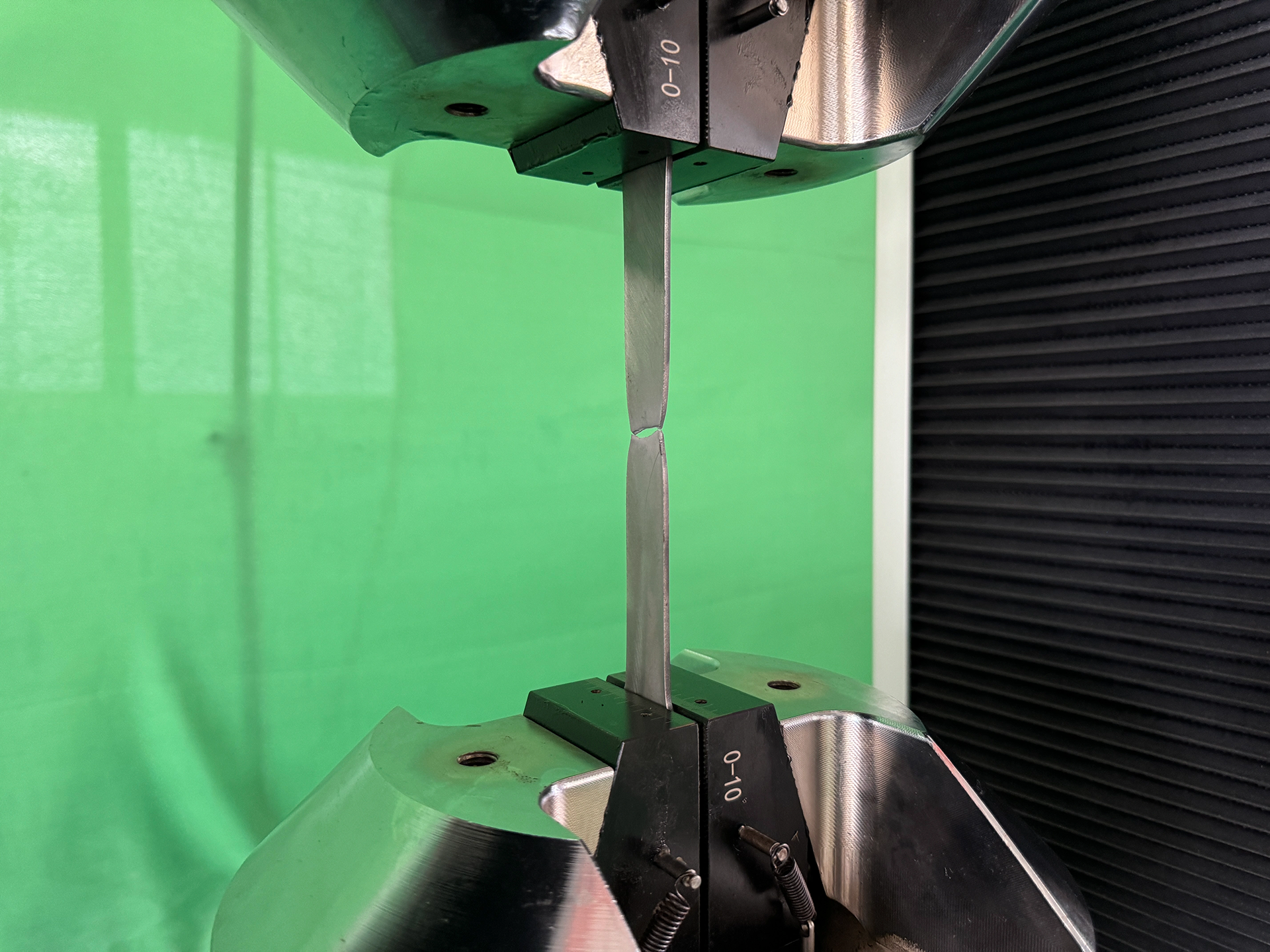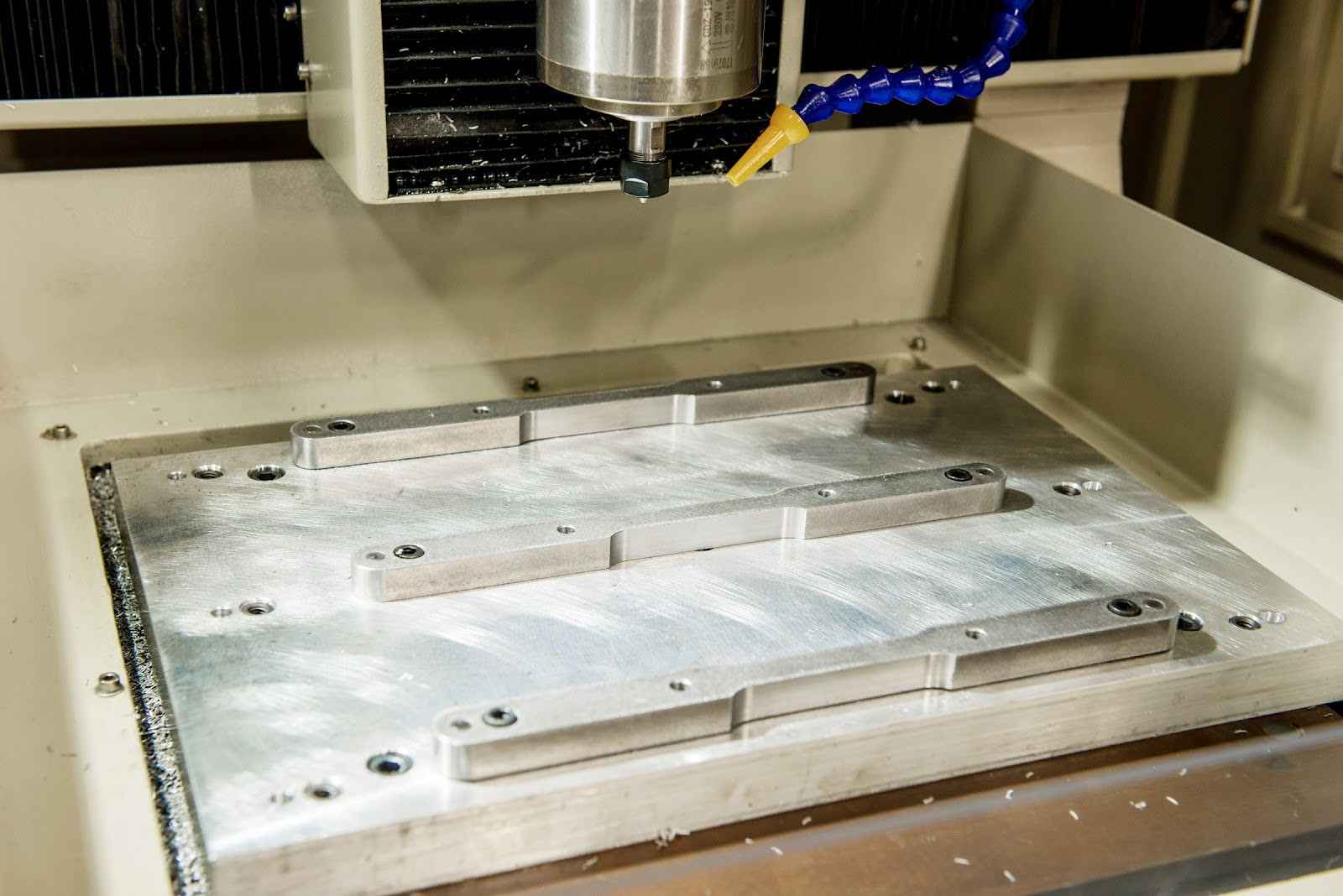
Flat Tensile Testing in Electric Vehicle Battery Casing Development
The development of electric vehicle (EV) battery casings requires materials that are both lightweight and durable. Battery enclosures must withstand mechanical stress, temperature fluctuations, and potential impacts while maintaining structural integrity. Flat tensile testing is integral to evaluating the mechanical properties of materials used for these casings so that they meet industry standards for strength, elongation, and durability.
By analyzing tensile properties, manufacturers can optimize material selection and design, leading to battery casings that enhance vehicle safety and performance. As the EV market continues to expand, the demand for advanced testing methods to guarantee battery enclosure reliability is more important than ever.
The Role of Flat Tensile Testing in EV Battery Casing Development
Battery casings in electric vehicles serve multiple functions—they protect the battery cells from external forces, prevent thermal runaway, and contribute to the overall structural integrity of the vehicle. To meet these demands, manufacturers use an array of materials, including aluminum alloys, high-strength steels, and advanced composites. However, the selection of the right material depends heavily on its tensile properties, which are determined through flat tensile testing.
Flat tensile testing is a standardized method that evaluates a material's response to tensile forces. During the test, a flat tensile specimen is placed in a Universal Testing Machine (UTM), where it is stretched until failure. The test provides crucial data, including tensile strength, yield strength, elongation, and Young’s modulus, helping engineers assess how a material will behave under mechanical stress.
There are several reasons why the tensile testing of EV battery casings is crucial:
- Impact Resistance: EV batteries must be protected from external forces during vehicle collisions or accidental drops. Materials with high tensile strength and elongation can absorb energy without fracturing, reducing battery damage risk.
- Thermal Expansion Management: Batteries generate heat during charging and discharging cycles, causing materials to expand and contract. A material with well-defined tensile properties can handle temperature-induced stresses without losing integrity.
- Lightweight Construction: Reducing vehicle weight improves energy efficiency and driving range. Flat tensile testing helps engineers identify materials that balance strength and weight, resulting in optimal casing performance.
- Fatigue Resistance: Repeated vibrations and dynamic loads affect battery casing longevity. Tensile tests help predict material fatigue life, enabling materials to endure long-term operational stress.
Key Benefits of Flat Tensile Testing in Battery Casing Development
One of the primary benefits of flat tensile testing is material strength and durability assessment. Battery enclosures must withstand mechanical stresses, such as vibrations from road conditions, accidental impacts, and external loads from vehicle structures. Tensile strength and elongation data obtained from testing help engineers select materials that resist deformation and cracking under stress. High-strength aluminum alloys and composite materials are often chosen because of their superior strength-to-weight ratio, which contributes to structural stability without adding unnecessary weight.
Another key advantage is fatigue resistance assessment. Battery casings are subjected to continuous expansion and contraction due to temperature fluctuations during charging and discharge cycles. Over time, repeated stresses weaken materials, leading to cracks or fractures. Flat tensile testing provides insights into fatigue life, helping manufacturers design casings that endure prolonged thermal cycling without degradation.
Additionally, flat tensile testing improves crash safety. In the event of a vehicle collision, the battery casing must remain intact to prevent catastrophic failures, such as short circuits or thermal runaway. By understanding how a material behaves under extreme tension, engineers can develop casing designs that absorb energy and minimize damage to internal battery cells.
Furthermore, tensile testing allows precise material optimization. Different manufacturing processes, such as stamping, extrusion, or casting, can alter mechanical properties. Conducting flat tensile tests on materials before and after processing provides assurance that any changes in strength, ductility, or elasticity are accounted for, allowing manufacturers to refine production techniques and maintain quality control.
Overall, flat tensile testing plays an essential role in improving battery casing reliability, safety, and efficiency. It provides manufacturers with critical data that enables them to design lightweight yet robust enclosures that enhance vehicle performance and longevity.
Typical Equipment for Flat Tensile Specimen Preparation and Testing
Accurate tensile testing begins with precise specimen preparation and high-quality testing equipment. Test results depend on specimens meeting standardized dimensions and surface quality requirements. This is where flat tensile specimen preparation machines, also referred to as CNC machines for tensile sample preparation, come into play.

Flat tensile specimen preparation machines are specialized tools used to cut, grind, and shape metal sheets into standardized test samples. These CNC machines for tensile sample preparation make certain that each specimen has a uniform thickness, smooth edges, and consistent geometry, which is fundamental to producing reproducible test results. Automated specimen preparation systems further boost efficiency and accuracy by reducing manual sample-cutting inconsistencies.
These CNC machines for tensile sample preparation offer high precision in shaping test specimens. They use advanced milling and cutting techniques to achieve perfectly machined flat tensile specimens, conforming to international testing standards such as ASTM E8, ISO 6892, and DIN 50125. CNC machining guarantees that sample dimensions remain within micrometer tolerances, minimizing errors in tensile testing.
Once specimens are prepared, they are tested using a Universal Testing Machine (UTM). UTMs are advanced mechanical testing devices that apply controlled tensile forces to a specimen, recording parameters such as yield strength, ultimate tensile strength, and elongation at break. Depending on test requirements, laboratories can choose from electromechanical UTMs, which offer precise force control for thin metal sheets, or hydraulic UTMs, which are suited to testing high-strength materials.
For battery casing manufacturers, investing in state-of-the-art tensile testing equipment is a crucial step in assuring the consistency and reliability of production materials. Automated tensile testing systems, equipped with digital extensometers and software-controlled force applications, provide real-time data analysis, improving quality control speed and accuracy.
Advancing EV Battery Safety Through Precision Testing
As electric vehicle technology advances, the need for strong, lightweight, and durable battery casings has never been greater. Flat tensile testing is integral to guaranteeing that the materials used for these enclosures meet the highest standards of mechanical strength, flexibility, and fatigue resistance. By conducting rigorous tensile tests, manufacturers can make informed material choices, optimize production techniques, and enhance overall vehicle safety.
The integration of advanced testing equipment, including flat tensile specimen preparation machines, CNC machines for tensile sample preparation, and UTM for tensile testing, results in high precision and repeatability in material analysis. These technologies enable engineers to minimize defects, improve material formulations, and achieve superior battery casing performance.
By prioritizing flat tensile testing in the development of EV battery enclosures, the industry is moving toward more efficient, safer, and longer-lasting electric vehicles. As testing methods improve, manufacturers will gain more control over material behavior, leading to lighter, stronger, and more resilient battery casings that support the next generation of sustainable transportation.







